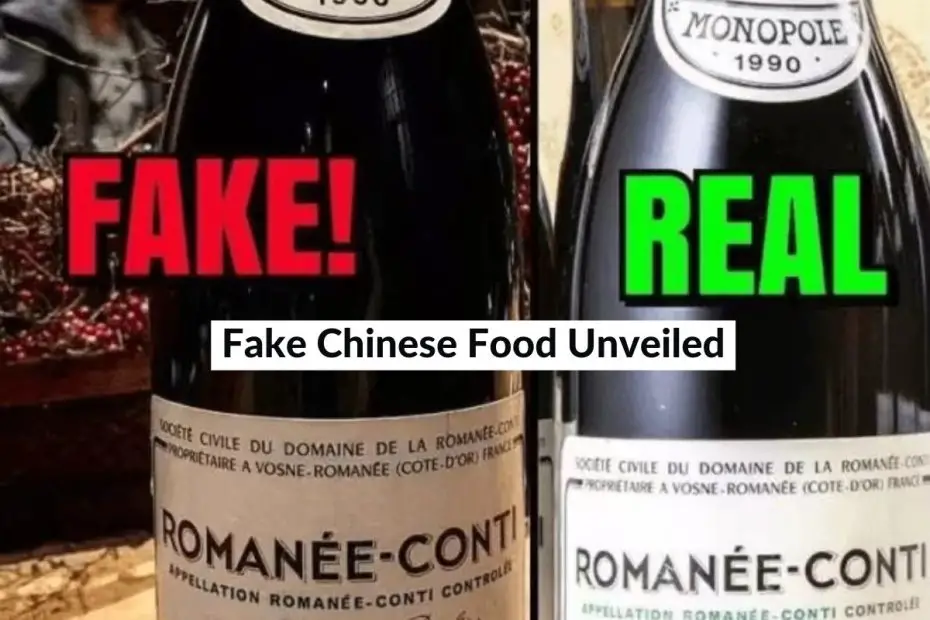Enter the vibrant world of Chinese cuisine, where each bite tells a story steeped in centuries-old culinary traditions.
However, amidst this enchanting realm, a fascinating and concerning phenomenon emerges: fake Chinese food.
Join me on an exploration of the surprising truths behind counterfeit flavors and imitation delicacies.
Fake Food in China:
When we talk about “fake food,” we are referring to different issues. It can include counterfeit food products packaged as reputable brands, food products that have been altered or adulterated, or even completely artificial food products.
China has implemented laws and regulations to enhance food safety, such as the National Food Safety Law enacted in 2009. However, enforcing these regulations can be challenging, and food fraud remains a prevalent problem.
Reports indicate that in a nine-month period in 2016, the Chinese government discovered 500,000 violations of food safety inspections.
Events like the China Food & Drinks Fair have showcased a significant number of counterfeit products, earning it the nickname “Disneyland of fakes.” (Not just food but also clothes)
China has a history of incidents related to food poisoning, malnutrition, and hospitalizations.
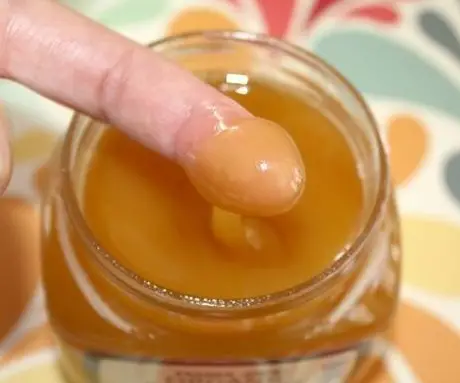
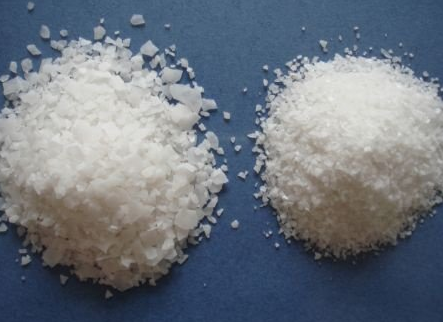
Instances include contaminated wheat protein, the use of sewage in tofu production, honey adulterated with beetroot or rice syrup, poisonous food, the use of industrial salt, and contaminated baby formula, among others.
China Melamine Scandals:
In 2004, counterfeit baby formula resulted in the deaths of babies due to malnourishment.
The investigation revealed insufficient protein content in the powder. In 2008, melamine-adulterated baby formula led to kidney disease in infants.
Melamine, a substance used in plastic manufacturing, was intentionally added to manipulate food quality testing introduced after the 2004 tragedy. Six babies lost their lives, and approximately 300,000 were affected by the incident. Subsequently, melamine adulteration was discovered in eggs, as it had been added to animal feed despite being prohibited.
This scandal prompted other brands to check for melamine, affecting several international companies. For instance, Cadbury found excessive levels of melamine in some of its chocolates manufactured in China. Other incidents involved wheat gluten contaminated with melamine, leading to pet deaths in the US.
The Lean Meat Powder Scandal in China:
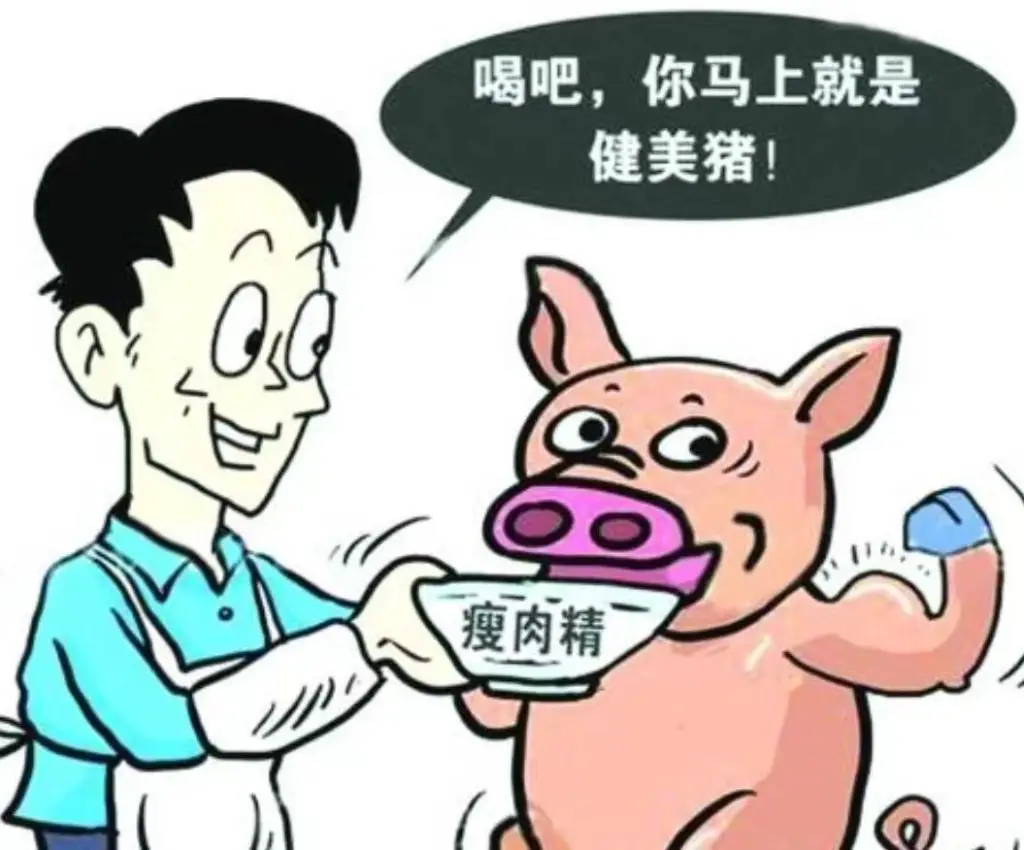
This refers to the widespread misuse and abuse of the banned substance known as lean meat powder in livestock and poultry farming.
Lean meat powder is a drug used to promote leanness in pork and beef, but it has been illegally and extensively used in many farms across China.
The substance is known to have harmful effects on human health when consumed in excessive amounts.
The scandal caused significant public outrage and raised concerns about food safety standards and the integrity of the food industry in China.
It led to increased scrutiny and stricter regulations to prevent such incidents from occurring in the future.
China’s Small Farms:
China’s agri-food industry is vast and intricate, characterized by a multitude of small farms. The sheer number and geographic spread of these farms make regulation challenging, but that’s only part of the story.
According to Bloomberg, many Chinese farmers cultivate small plots of government-owned land. Due to the difficulty of buying or selling land, these farmers resort to excessive use of drugs, fertilizers, and pesticides to maximize their yields.
In 2021, Chinese consumers discovered that sheep farmers were administering clenbuterol to their animals to promote growth. Clenbuterol is a banned substance associated with health problems in humans.
Similar issues have plagued chicken and pork farming in the past, as a 2020 study revealed that 75% of chicken farmers used antibiotics from the prohibited list.
The overuse of antibiotics not only poses health risks but also contributes to problems such as food contamination.
Fake Seasoning in China:
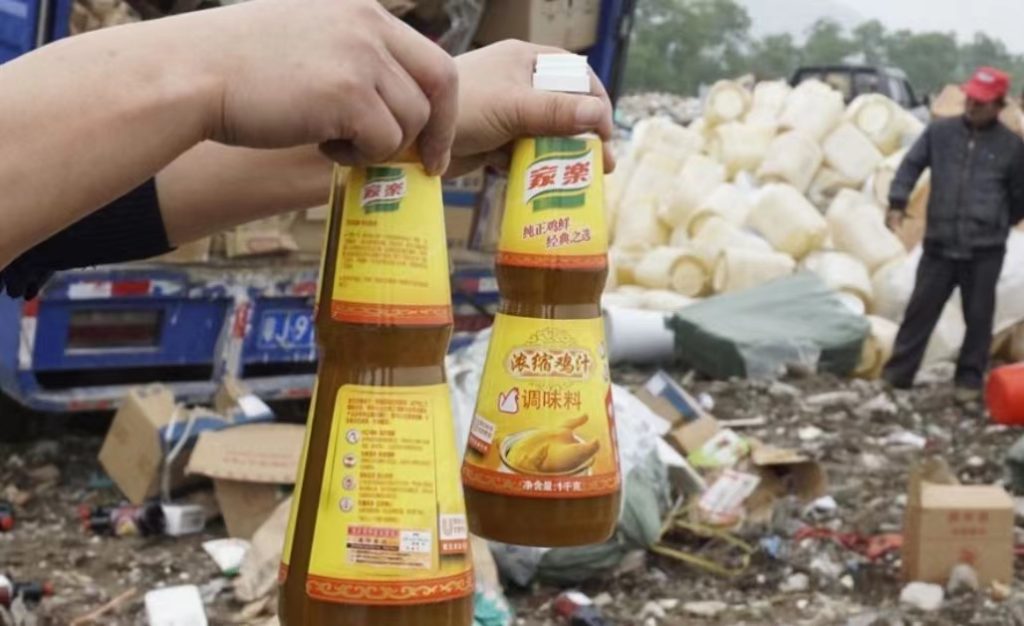
Food manufacturing in China has also been associated with health concerns.
In 2017, a scandal erupted when fake seasoning products were uncovered. These products contained ingredients like industrial salt, which is prohibited in food due to potential health hazards. Nearly 50 factories were involved in the illicit operation.
This fraudulent network had operated unchecked for over a decade before being exposed by The Beijing News. Popular products like soy sauce, vinegar, and chicken stock were found bearing labels of well-known brands like Maggi, Knorr, and Nestle.
Fake Wine in China:
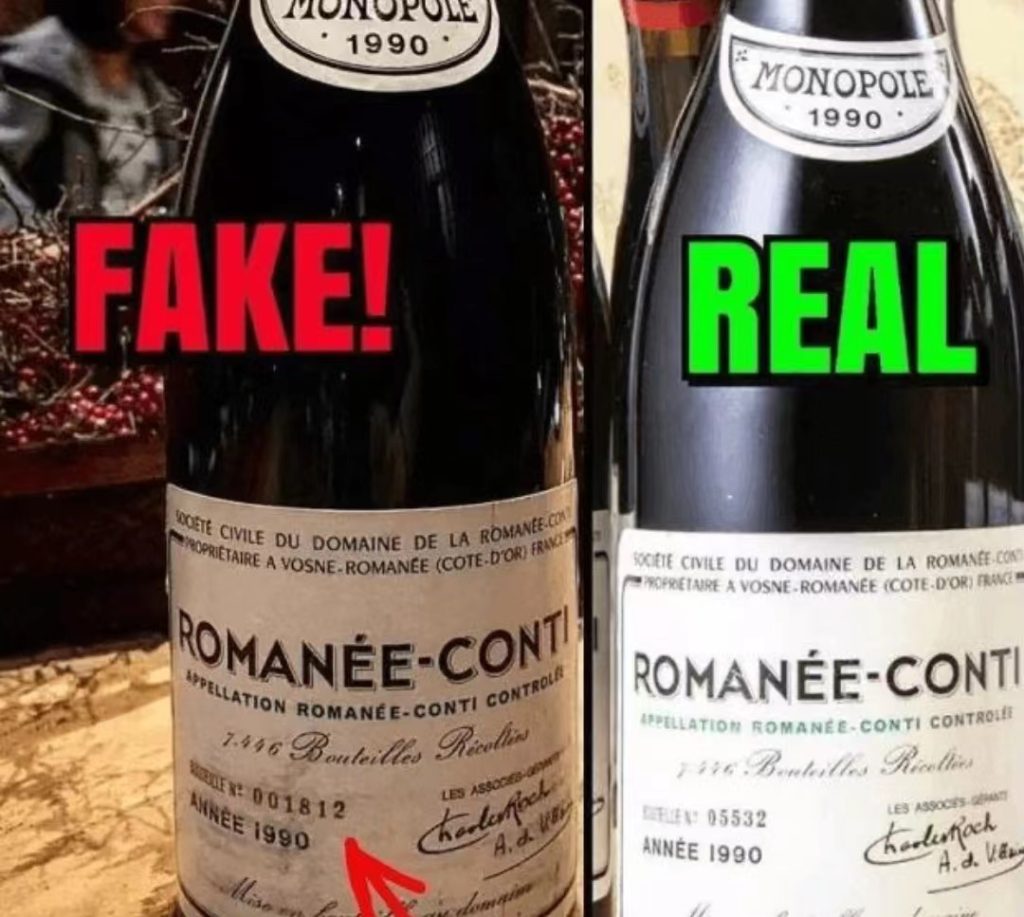
Food fraud knows no bounds, affecting even the wine industry.
Recently, Chinese authorities dismantled a network involved in the production, distribution, and sale of counterfeit Penfolds, an Australian wine brand.
During the operation, nine counterfeit wine manufacturing facilities were discovered, and the estimated value of the seized fake Penfolds exceeded $20 million.
The counterfeiters primarily focused on e-commerce platforms, selling fake wine bottles online complete with anti-counterfeit stickers.
Shortly thereafter, imitation Penfolds wines emerged in China. These bottles closely resembled Penfolds in appearance, with labels and fonts similar to the original brand, albeit with slight name variations like “Benfords.”
Counterfeiting also impacts numerous other wine brands. In 2020, a Chinese court convicted a counterfeiter involved in producing fake bottles of international brands, resulting in a significant victory for the Bordeaux collective trademark.
Fake Expiration Dates:
Fraudsters employ fake expiration dates as a means to deceive consumers and potentially harm genuine brands.
An investigation by Chinese authorities uncovered a scheme involving the alteration of expiration dates on imported olive oil bottles, which were then sold to distributors in China. Approximately 10,000 bottles, valued at $1.3 million, were seized in this incident.
The report from 2017 mentioned three olive oil brands involved: San Giuliano and Clemente from Italy, and Natura from Spain.
Mislabeling Dietary Supplements:
In 2019, Xu Jia Bao, a Chinese individual, was sentenced in Texas following an investigation by the FDA’s Office of Criminal Investigations. Xu worked for Shanghai Waseta International Trade Co. Ltd., a Chinese company that supplied ingredients for dietary supplements.
He admitted to knowingly selling synthetic stimulant ingredients to a U.S. supplement manufacturer, fully aware that they would not be accurately labeled. The supplement contained DMHA, a substance that American manufacturers may refuse to include, thus agreeing to the false labeling.
Plastic Rice from China:
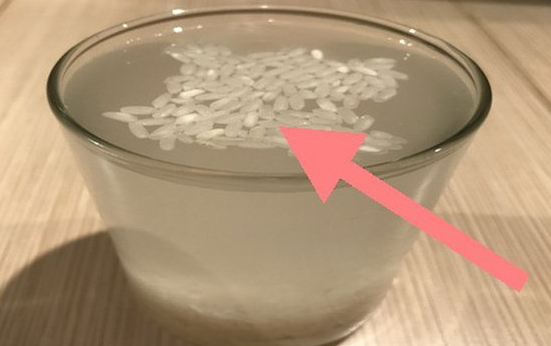
Reports about Chinese plastic rice first emerged in 2011, describing how synthetic resin was added to potato starch to create grain-like shapes.
The food-related scandals from China do not stop there, as incidents have involved contaminated pork that glows, dyed soybeans passed off as peas, and even walnut shells filled with concrete and cleverly reassembled.
FAQs:
Fake Chinese food can be found in various forms, such as packaged meals, instant noodles, sauces, snacks, and even in some restaurants.
Counterfeit Chinese food is prevalent in both domestic and international markets, with consumers sometimes unaware that they are purchasing or consuming inauthentic products.
The production and distribution of fake Chinese food can have significant health and economic consequences, as it may contain harmful ingredients, deceive consumers, and undermine the reputation of genuine Chinese cuisine.
Seek medical attention: If you develop symptoms of food poisoning or experience any adverse reactions after consuming suspected fake Chinese food, consult a healthcare professional immediately. They can assess your condition, provide necessary treatment, and offer guidance on managing any potential health risks.
Preserve evidence: If possible, retain the packaging or any leftover food for further investigation. This can help authorities trace the source of the counterfeit product and take appropriate actions to protect others from potential harm.
Report the incident: Contact the relevant food safety authorities in China just call 12315 or regulatory agencies in your area to report your concerns. Provide them with detailed information about the suspected fake Chinese food, including the brand, packaging, place of purchase, and any associated symptoms. By reporting such incidents, you contribute to protecting others and raising awareness about food fraud.
